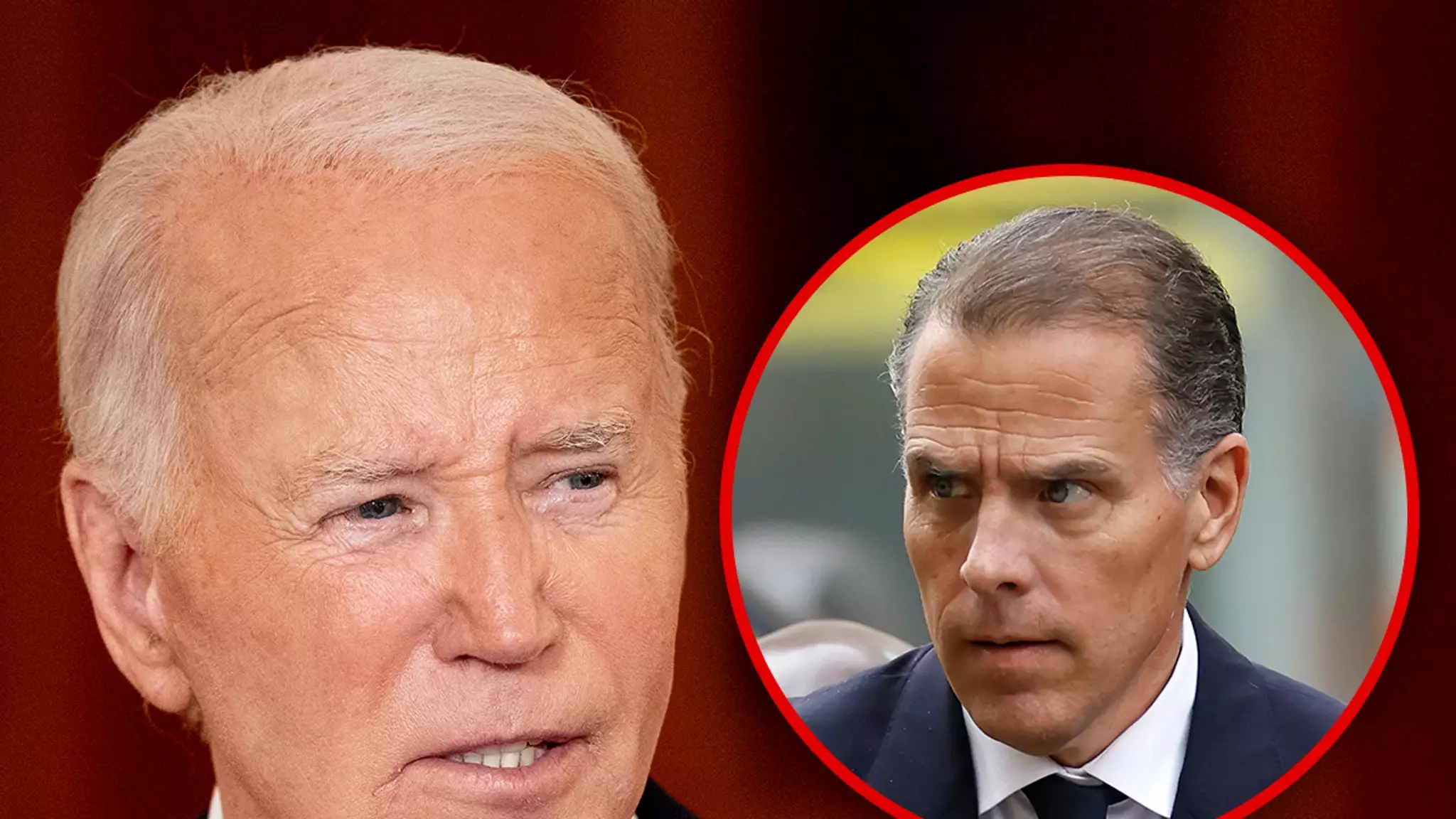In a dramatic political landscape where personal and public matters intermingle, President Biden’s decision to pardon his son Hunter has sparked both intrigue and skepticism. Initially perceived as a spontaneous act of familial support, it has become increasingly clear that this decision was meticulously planned well in advance.
Pre-Meditated Strategy or an Act of Love?
Sources close to the matter reveal that President Biden had been contemplating this pardon for over three months, indicating a level of forethought that contradicts the image of a spur-of-the-moment decision. This revelation raises critical questions about the motivations behind such a significant choice. Is this truly an act of a caring father seeking to shield his son from the harsh realities of the judicial system, or a calculated move designed to mitigate political fallout resulting from his son’s legal tribulations? The complexity of the situation suggests a blend of both personal empathy and political pragmatism.
The announcement also sheds light on the intricate relationship between personal issues and political maneuvering. Hunter Biden’s legal challenges, particularly his conviction on gun-related charges and the subsequent tax-related allegations, have long been exploited by political adversaries seeking to tarnish President Biden’s reputation. The narrative suggests that Joe Biden’s agitation following a judge’s rejection of Hunter’s plea deal may have influenced his impending decision to extend a pardon. Observers must ponder whether the president viewed his son’s plight as being entangled in a politically charged environment, leading him to act out of both paternal instinct and a desire to normalize Hunter’s circumstances amid public scrutiny.
One of the most perplexing aspects of this situation is Hunter’s decision to plead guilty to federal charges, despite his and his legal team’s belief in their ability to win in court. This surprising choice appears to have been made with the implicit knowledge of a forthcoming pardon from his father, raising red flags about the integrity of the judicial process. Here, the ramifications extend beyond just a familial connection; they touch on fundamental principles of justice and whether the legal system can truly operate free from influence when high-profile cases are involved.
President Biden’s comments during the announcement highlight an essential aspect of contemporary criminal justice: the perception of unequal treatment based on one’s status. In his press release, he emphasized the disparity between Hunter’s prosecution and the resolutions normally afforded to individuals in similar circumstances, suggesting that the political identity of the accused significantly influenced the judicial outcome. As more cases surface that question the fairness of legal proceedings against those linked to powerful families, the need for a more equitable justice system becomes pressing.
Biden’s decision to officially pardon Hunter takes on a multifactored character that interweaves elements of family loyalty, political strategy, and judicial integrity. It not only underscores the unique challenges faced by public figures but also serves as a reflection of broader societal issues regarding privilege and accountability within the legal system. As the implications of this pardon reverberate through political and public discourse, it is evident that this is a story not just about Hunter Biden, but about the larger narratives that define justice in America today.

